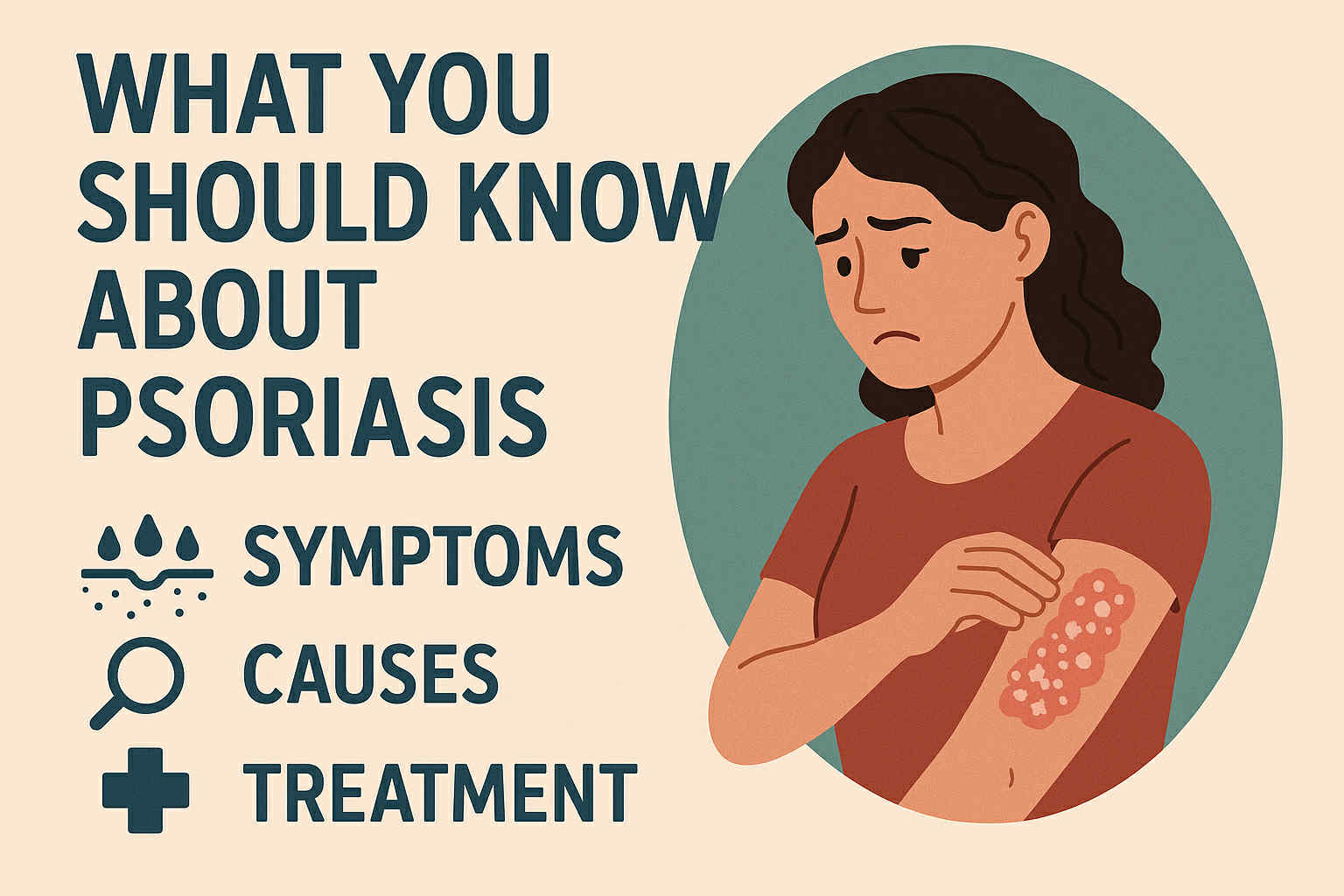What you should know about psoriasis

Psoriasis is a common skin condition, but there can sometimes be misleading information or total myths about it online. Vhi consultant dermatologist, Dr Rebecca Hellen, explains the facts about psoriasis, including causes, treatments and dealing with itching.
The basics: what is psoriasis and what causes it?
Psoriasis is a chronic (meaning something lasting a long time or recurring often) skin disorder that causes areas of thickened and inflamed skin. The affected skin is covered by scales that can appear silvery in colour. Psoriasis commonly affects the elbows, knees and scalp, but it can present in various areas and ways.
Psoriasis is caused by:
- Immune system issues: The body’s defence system attacks healthy skin cells and causes them to grow too quickly.
- Genetics: Psoriasis can run in families. Up to 40% of people with psoriasis will have a family member that’s affected by it too.
Psoriasis flare-ups can be triggered by:
- Stress: High levels of stress can make psoriasis worse or trigger a flare-up.
- Infections: Strep throat can cause psoriasis to flare, particular guttate psoriasis.
- Skin injuries: Cuts, scrapes or even severe sunburns can trigger psoriasis as the skin tries to heal.
- Medications: Certain medications can make psoriasis worse.
- Lifestyle factors: Smoking is a risk factor for psoriasis. Heavy alcohol intake can flare psoriasis and reduce response to treatment.
The types of psoriasis
There are several types of psoriasis, including:
Chronic plaque psoriasis: This is the most common form of psoriasis, and it tends to affect the elbows and knees, but it can appear anywhere on the body. The affected skin will have thickened, dry, red plaques with silvery scale and can be itchy and sore.
Guttate psoriasis: This causes small, droplet-shaped plaques dotted all over the skin. It tends to affect younger people more commonly than adults. It can sometimes appear after a throat infection.
Inverse psoriasis: Affects the parts of the body with folds, like under the arms, breasts, or groin. The rash can look shiny, smooth, and red. These plaques are not as thick or scaly as those found in typical psoriasis and are sometimes mistaken for fungal skin infections.
Palmoplantar psoriasis: Appears on the palms of your hands and soles of your feet with redness and scaling and a clearly defined border. It is similar to a condition called palmoplantar pustulosis, which has pustules (small yellow, pus-filled bumps) within the rash.
Nail psoriasis: Causes your nails to develop small dents or pits. It can also change the colour and shape of your nails.
Severe variants: Erythrodermic psoriasis occurs whenpsoriasis covers over 90% of the body surface. Generalised pustular psoriasis is similar to this, however, there are pustules (small pus-filled bumps) within the rash. These more severe types of psoriasis require urgent treatment with your healthcare provider.
If you think you might have any of the above, speak to your healthcare provider for a diagnosis.
Treatment and management of psoriasis
You may come across various treatment options online, but it’s best to follow the treatment plan that your healthcare provider suggests. Psoriasis can be difficult to treat because there are so many different types and there might be various sites on the body involved; treatment will vary depending on both, so it’s vital that you’re guided by your healthcare provider. Once you receive a diagnosis from a healthcare provider and know exactly what type of psoriasis you’re dealing with, you can focus on your treatment options. Mild psoriasis can be treated with topical treatments (treatments that are applied directly to the skin), which will vary depending on which parts of your body are affected. This is directed by your GP or a dermatologist. There are numerous prescription creams, gels, lotions and sprays that can be helpful. For psoriasis on the scalp, treatment can be trickier, and may involve some tar-based ointments to descale the scalp. Following this, topical steroids might be used on the scalp. It might seem overwhelming to hear about all the treatment options, but your healthcare provider will guide you and answer any questions you have.
Self-care is really important when you have psoriasis or any other chronic condition. Taking care of your wellbeing, with the support of your healthcare providers, can help you manage your symptoms and protect your mental health. Your healthcare provider will advise on lifestyle factors you can adjust or try out, such as exercise, diet, and sleep tips. Always pay attention to your mental health too and keep your healthcare provider informed―there are lots of options available to help you take care of your emotional wellbeing too.